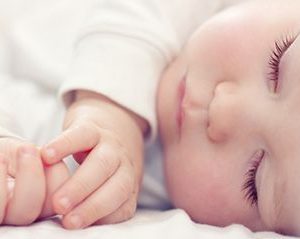- Recognizing the Signs of Hypothyroidism
- 10 Strategies to Overcome Insomnia
- Could Artificial Sweeteners Be Aging the Brain Faster?
- Techniques for Soothing Your Nervous System
- Does the Water in Your House Smell Funny? Here’s Why
- Can a Daily Dose of Apple Cider Vinegar Actually Aid Weight Loss?
- 6 Health Beverages That Can Actually Spike Your Blood Sugar
- Treatment Options for Social Anxiety Disorder
- Understanding the Connection Between Anxiety and Depression
- How Daily Prunes Can Influence Cholesterol and Inflammation
Low Risk of Mom Passing COVID to Newborn

The risk of mother-to-newborn transmission of COVID-19 is low, but the illness in pregnant women can trigger preterm birth, researchers say.
The new study looked at 255 babies born in Massachusetts last year to mothers with a recent positive test for COVID-19.
Only about 2% of the 88% of babies who were tested for COVID-19 had a positive result.
But worsening COVID-19 illness in mothers-to-be accounted for about three-quarters of preterm births in the study group. Preterm birth increases the risk of short- and long-term complications in infants, including respiratory distress, chronic health problems and developmental disabilities.
The study was published online April 23 in JAMA Network Open.
“We found that of babies born to mothers with COVID-19, very few babies tested positive,” senior author Dr. Mandy Brown Belfort said in a Beth Israel Deaconess Medical Center news release.
“Instead, the adverse health impact of maternal COVID-19 on the newborn was from preterm delivery, usually prompted by a mother’s worsening illness. Our findings support the need for thoughtful and collaborative decision-making around delivery timing in the setting of maternal COVID-19 illness,” added Belfort, an associate professor of pediatrics at Harvard Medical School, in Boston.
The study also found that newborns of “socially vulnerable mothers” — those from poorer neighborhoods — had an increased risk for testing positive for COVID-19. This might be because these mothers have less access to care and face discrimination from health care providers, according to the researchers.
Discrimination may also cause chronic stress, which can reduce the immune system’s ability to fight viruses, they noted.
Study co-author Dr. Asimenia Angelidou said, “We expected the mode of delivery and/or the degree of maternal illness to increase the risk of newborn infection, but were surprised to find that this was not the case.” Angelidou is a neonatologist at Beth Israel Deaconess Medical Center.
“While the low rates of neonatal infection we observed are reassuring, it is important that providers remain vigilant,” she added. “Even during public health emergencies like the ongoing pandemic, providers need to carefully monitor newborns for atypical signs of the illness, while also trying to avoid unnecessary premature deliveries that pose inherent risks for both mother and child.”
More information
The U.S. Centers for Disease Control and Prevention has more on COVID-19 and pregnancy.
SOURCE: Beth Israel Deaconess Medical Center, news release, April 23, 2021
Source: HealthDay
Copyright © 2026 HealthDay. All rights reserved.










